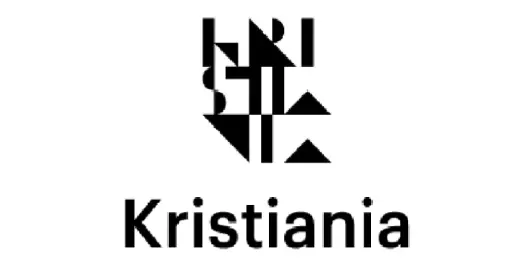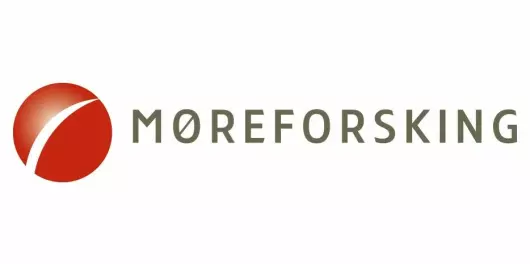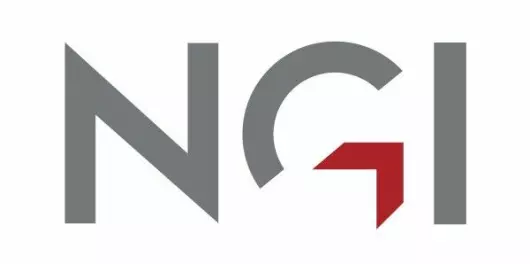Ledig stilling på Universitetet i Oslo
Blindern og Urbygningen (Foto: Wikimedia og Colourbox)
PhD Research Fellow in Semantic Technologies
Deadline: 21.12.2022
Universitetet i Oslo
The University of Oslo is Norway’s oldest and highest rated institution of research and education with 28 000 students and 7500 employees. Its broad range of academic disciplines and internationally esteemed research communities make UiO an important contributor to society.
The Department of Informatics (IFI) is one of nine departments belonging to the Faculty of Mathematics and Natural Sciences. IFI is Norway’s largest university department for general education and research in Computer Science and related topics.
The Department has more than 1800 students on bachelor level, 600 master students, and over 240 PhDs and postdocs. The overall staff of the Department is close to 370 employees, about 280 of these in full time positions. The full time tenured academic staff is 75, mostly Full/Associate Professors..
About the posiiton
Position as Ph.D. Research Fellow in Semantic Technologies is available at the Department of Informatics, the Faculty of Mathematics and Natural Sciences, the University of Oslo, with the starting date no later than September 1st 2023.
The fellowship period is three (3) years and is devoted to carrying out a project entitled `Querying Ontologies Generated via Ontology Templates’. Candidates may be offered one additional year by the Department of Informatics; the four (4) year position then entails a compulsory workload of 25% that may consist of teaching, supervision duties, and research assistance. This will be decided at the time of appointment.
Project description
The main purpose of this project is to investigate the theoretical and practical aspects of query answering over knowledge graphs and ontologies generated by ontology template language OTTR. RDF (Resource Description Framework) is a standardised general data format promoted by the Semantic Web initiative, where data is represented as a collection of triples, оften called a knowledge graph. Each RDF triple represents a statement that entities andare related by relation . This simple structure can be used to represent most data structures, such as graphs, trees, and relational tables, as well as metadata about these structures. RDF is also commonly used as a serialisation format for ontologies, called OWL (Web Ontology Language). Here, an ontology is a logical representation of domain knowledge expressed in a suitable logic (e.g., one of Description Logics). These features make RDF a well-suited format for representing data, metadata and knowledge on the Web and in knowledge bases, and thus to be used for data exchange and data integration. Even though RDF can encode rich and varied structures, it is very low-level and has no inherent mechanism for abstraction. OTTR (Reasonable Ontology Templates) is a recent macro language for RDF that can capture and instantiate templates (i.e., patterns) of groups of related triples. It has been developed at the University of Oslo within Norwegian Centre for Research-Driven Innovation SIRIUS. OTTR is designed to improve the efficiency and quality of building, using, and maintaining RDF knowledge graphs, with or without ontologies. A template consists of a signature, similar to a function signature in programming languages, and a pattern consisting of several triples and/or “calls” to other templates; the signature can contain parameters (i.e., variables) and all the pattern elements may use these parameters. Thus, given entities as arguments substituting signature parameters, a template may be recursively instantiated to an RDF knowledge graph. As a result, templates can also be viewed as mappings from relational (or tabular) databases to RDF knowledge graphs.
OTTR is anticipated to have great potential in the theory and practice of semantic technologies both in academia and industry. However, its application is sometimes limited by the fact that the RDF knowledge graph has to be materialised in full by an OTTR engine before it can be used (e.g., queried by means of RDF query language SPARQL). In this project, the appointed PhD candidate will investigate the theoretical and practical aspects of querying OTTR-produced RDF knowledge graphs without materialising them. For example, they will design, implement, and analyse algorithms for rewriting queries over RDF knowledge graphs (presumably obtained from a relational database by OTTR) to equivalent queries over the original database. Such rewritings are assumed to be data-independent—that is, the rewritten relational database query should give the same answer as the original knowledge graph query for every possible database that can be input to the given OTTR template. The project will be executed at the ASR (Analytical Solutions and Reasoning) group at IFI (Department of Informatics), University of Oslo. It will be implemented in the context of SIRIUS and Integreat research centres and in collaboration with their industry partners that are interested in OTTR development (which include Aibel, DNV, Grundfos, and CapGenimi). Project supervisors: Prof. Egor V. KostylevDr. Leif Harald KarlsenDr. Martin Georg Skjæveland
Qualification requirements
The Faculty of Mathematics and Natural Sciences has a strategic ambition to be among Europe’s leading communities for research, education and innovation. Candidates for these fellowships will be selected in accordance with this, and expected to be in the upper segment of their class with respect to academic credentials.
Mandatory qualifications:
- Master’s degree or equivalent (120 credits equivalent of the Norwegian Master’s degree program) in computer science or informatics
- Foreign completed degree (M.Sc.-level) corresponding to a minimum of four years in the Norwegian educational system
- Strong background in at least one of the following or similar fields: semantic technologies, logic, knowledge representation and reasoning
Desired qualifications:
- Programming experience with the use of semantic technologies is a benefit
- Experience with the theory and/or practice of query languages
- Experience with the theory and/or practice of OTTR ontology template language
Grade requirements:
The norm is as follows:
- the average grade point for courses included in the Bachelor’s degree must be C or better in the Norwegian educational system
- the average grade point for courses included in the Master’s degree must be B or better in the Norwegian educational system
- the Master’s thesis must have the grade B or better in the Norwegian educational system
- Fluent oral and written communication skills in English.
- English requirements for applicants from outside of EU/ EEA countries
The purpose of the fellowship is research training leading to the successful completion of a PhD degree.
The fellowship requires admission to the PhD programme at the Faculty of Mathematics and Natural Sciences. The application to the PhD programme must be submitted to the department no later than two months after taking up the position. For more information see:
http://www.uio.no/english/research/phd/
http://www.mn.uio.no/english/research/phd/
Personal skills
- ● The candidate should have strong team working skills and must be motivated to join and work tightly with the OTTR project team. This should be reflected in the application letter, references and in an interview.
We offer
- Salary NOK 501 200 – 544 400 per year depending on qualifications and seniority as PhD Research Fellow (position code 1017)
- Attractive welfare benefits and a generous pension agreement
- A highly dynamic and motivated team of international researchers
- Career development programmes, professional courses and workshops
- Oslo’s family-friendly surroundings with their rich opportunities for culture and outdoor activities
How to apply
The application must include:
- A cover letter - statement of motivation for the position and research interests
- CV (summarizing education, positions and academic or industrial work experience, scientific publications)
- Copies of the original Bachelor and Master's degree diploma, transcrips of records
- Documentation of English Proficiency
- List of publications and academic work that the applicant wishes to be considered by the evaluation committee
- Names and contact details of 2-3 references (name, relation to candidate, e-mail and telephone number)
The application with attachments must be delivered in our electronic recruiting system, please follow the link “Apply for this job”. Foreign applicants are advised to attach an explanation of their University's grading system. Please note that all documents should be in English (or a Scandinavian language).
Shortlisted candidates will be called for interview.
Formal regulations
Please see the guidelines and regulations for appointments to Research Fellowships at the University of Oslo.
No one can be appointed for more than one PhD Research Fellowship period at the University of Oslo.
According to the Norwegian Freedom of Information Act (Offentleglova) information about the applicant may be included in the public applicant list, also in cases where the applicant has requested non-disclosure.
The University of Oslo has an agreement for all employees, aiming to secure rights to research results etc.
The University of Oslo aims to achieve a balanced gender composition in the workforce and to recruit people with ethnic minority backgrounds.
Contact information
For further information please contact Associate Professor Egor V. Kostylev, e-mail: egork@ifi.uio.no
For questions regarding the recruitment system, please contact HR Adviser at the Faculty of Mathematics and Natural Science, Therese Ringvold, e-mail: therese.ringvold@mn.uio.no
Apply for this job













